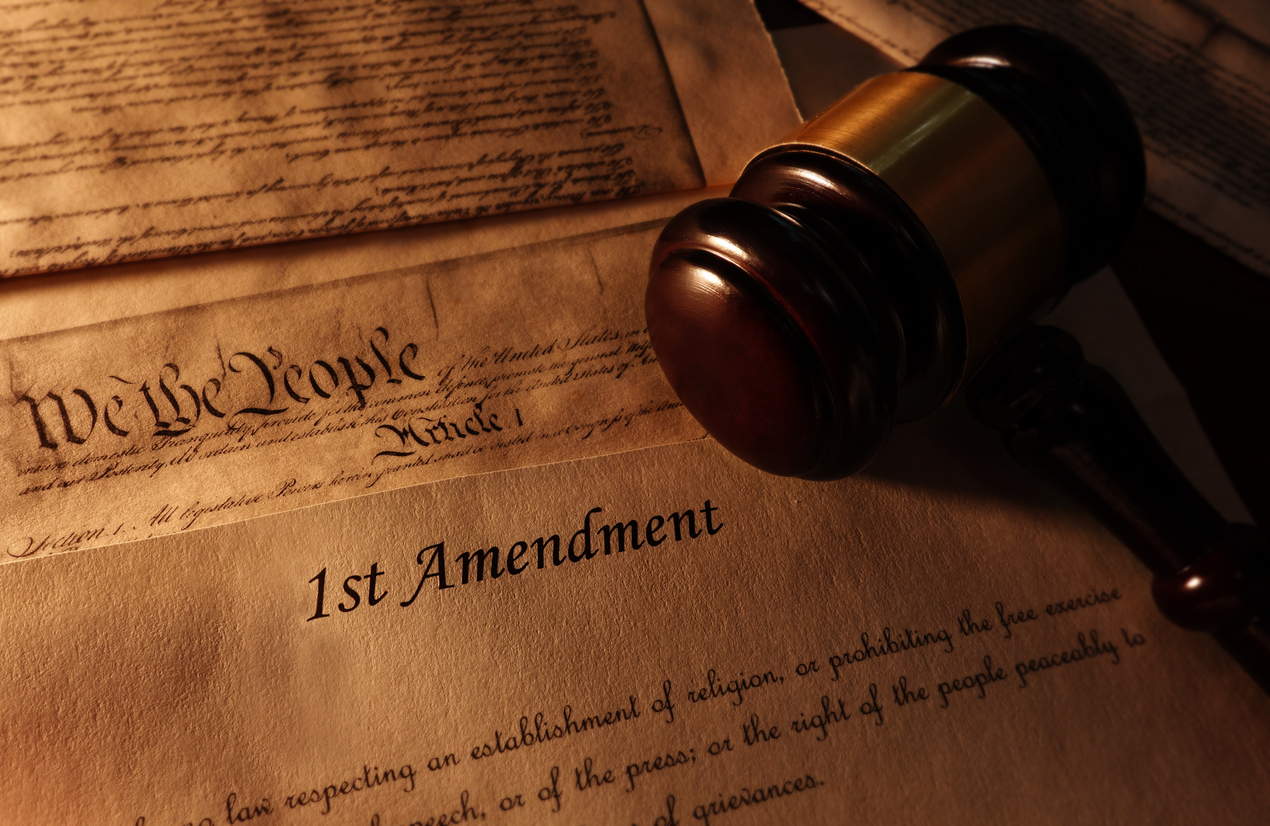Vocation of a Lawyer: Honesty
By Frank DeVito
This blog is the third post in the "Vocation of a Lawyer" series. View Part 1 here and Part 2 here.
The calling of all Christians is to be holy and conformed to the life of Jesus Christ, to be “perfect, therefore, as your heavenly Father is perfect.”1 Perfection consists of cooperating with God’s grace to become Christ-like, to do what the Gospel calls each person to do. One of the clear commands of Christ that ought to distinguish the Christian is unfailing honesty. The Ten Commandments forbid us from bearing false witness. In the Sermon on the Mount, Christ tells us: “Let what you say be simply ‘Yes’ or ‘No’; anything more than this comes from evil.”2 Speaking simply and honestly is a command given directly from God, in both the Old Testament and in the Gospel. How, particularly, does this apply to the vocation of the lawyer?
Note that here the moral obligation of the Christian and the ethical obligation of lawyers found in the Rules of Professional Conduct regarding candor have significant overlap. Thus, by striving to be good, honest Christian lawyers, we fulfill not only our duty as Christians but the duty required of all lawyers. This honesty comes into play in several ways: in particular, a lawyer has duties to be honest with the court, with opposing counsel, and with one’s own clients.
Honesty with the court has obvious importance: besides being required by the ethical rules, the court has a solemn duty to apply the law to the facts and produce a just judgment. Lawyers have a duty to zealously represent their client’s case, but when all parties do this honestly, the court is in the best possible situation to evaluate the entire situation and make the best judgment. A court cannot rule justly on the factual and legal situation if an attorney is not providing the relevant facts and law honestly.
The Rules of Professional Conduct focus on candor before the tribunal, but there is an important aspect of candor and honesty unrelated to conduct in court that lawyers may overlook: honesty with one’s own clients and potential clients. Honesty here does not simply mean avoiding telling lies, but actively giving clients an honest assessment of their situation.
Attorneys may be tempted to overlook or make light of the negative aspects of a client’s situation. After all, it is easier to focus on the strengths of a client’s case, the parts that a judge or jury is likely to receive well. But what about the weakest parts of the case? Do you address with your client the evidence likely to hurt his case? Do you bring up the unpleasant things opposing counsel may bring up about your client’s case, or even his character? Do you candidly share with your client the real possibility that he may spend hours of time and thousands of dollars on this case, only to receive an inadequate “compromise verdict” or even an adverse ruling where the client gets nothing?
Failure to be candid with a client may also be a temptation, not because of fear of unpleasant conversations, but rather because some lawyers (more or less consciously) have a desire to keep more clients in litigation and thus bill more hours. The need to be honest with clients about the realities of their cases is crucial. Clients come to lawyers not merely for a legal service, but to receive good counsel. As an attorney, that involves explaining honestly the good and the bad alike to a client, even if such honest counsel leads the client to choose to settle his case or not bring a lawsuit in the first place.
The duty of the good counselor is to explain more than just the possible outcomes of a lawsuit. Clients deserve to hear the intangible aspects of the process, such as the personal time and the legal fees the client will likely spend, as well as the stress and emotional upheaval he may experience if he pursues a case to the end. Such candid and honest advice may, in fact, lead to clients needing less legal representation and therefore paying you less money. But this is part of an attorney’s calling to provide good counsel. Additionally, the trust created by offering honest, selfless advice in this fashion can stand out and make a deep impression on clients, resulting in relationships that can lead to referrals and help one’s legal practice succeed in the long term.
Finally, Christian honesty requires candor with opposing counsel. Of course, the duty of confidentiality to your client will require you not to reveal certain things in conversations with opposing counsel. It is reasonable, even necessary, to withhold certain information, make impassioned arguments, and zealously represent your client’s position. But honesty remains non-negotiable. So it should go without saying that a good counselor does not lie to opposing counsel, even in small matters. It is not acceptable to say “I know for a fact this is absolutely my client’s best offer” or “I guarantee my client will not change his mind on this” when you know these statements are untrue. There are ways to negotiate effectively without lies. This might be a challenge; it is often simpler in the moment to lie. But it is the duty of the Christian lawyer to be both an effective advocate and a scrupulously honest person.
Honesty may seem so obvious a requirement that it is not worth spending time reflecting on. But once an attorney has had some time in practice, observing other lawyers and hearing their stories, communicating with opposing counsel, and litigating in courtrooms, it becomes obvious that the principle “do not lie” is not taken as an absolute by many attorneys. Yes, most attorneys will answer the general question “are attorneys required to be honest?” in the affirmative. But if you start to drill down on specifics - giving a false ultimatum to opposing counsel, making a statement to the court that “I never saw the scheduling order” that the attorney really just forgot about, or hiding the downside of pursuing litigation when discussing with a client - you may be surprised at how the principles are not always held to in practice.
St. Therese of Lisieux counsels us that the way to sanctity is to do small things with great love. Lofty principles about virtue are worthless without putting them into practice in the little events of daily life. For a lawyer, the practice of honesty is a great opportunity to sanctify one’s conversations, one’s giving of counsel, one’s arguments in court, by letting one’s yes mean yes and one’s no means no. Each time it is difficult to be honest, to avoid the “white lie,” we have a blessed opportunity to cultivate the virtue of honesty and offer it as a prayer. Good practices in small matters, done repeatedly over time with love, are the means God gives us to be transformed into saints. Repeated lies (even small ones) make one into a liar. Repeated efforts to tell the truth can conform one to the Truth.
----------------------------------
1 Matthew 5:48
2 Matthew 5:37
.png)




